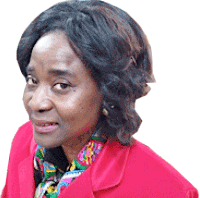The story of great men and women are filled with anecdotes. Whether they are true or false, they show people’s admiration of these heroes and heroines of history. For me and many like me, Chukwuemeka Odumegwu Ojukwu was one such hero about whom many anecdotes and hagada were created. He was said to have been invited to a function in the South South region of Nigeria where the exploitation of the people of the region was being discussed. When Ojukwu was called to make a contribution, he was said to have taken the podium and said “Good morning, Good morning, and Good morning,” and sat down – like when Jesus took the scroll and read from the book of Isaiah that the spirit of the lord was upon him (Lk. 4). That day, according to the holy writ, all eyes were on him, expecting to hear what more he had to say. To their disappointment, he only told them that the things they heard read were being fulfilled as they listened. My postulation here is that with the Boko Haram onslaught, the sentiments that created the Ahiara Declaration is being replayed, and if we do not take the necessary precaution, we may someday hear another good morning or its equivalent.
Should you still be wondering of the sense implied in the good mornings so mentioned, it will be beneficial to understand that the Igbo say that whenever one awakens is his morning (mgbe onye ji puta ura bu ututu ya). By saying “good morning”, it was as if Ojukwu was acknowledging that the South South people are waking up to what was happening to them in the Nigerian state and so deserve to be greeted for waking up.
However, the greeting understood in the Nigerian sensibility is like saying welcome to an old/new dawn; welcome that your eyes are now open to what he woke up to many years ago in the Biafran struggle but was frustrated by an unhealthy collusion of the region’s elite with the Nigerian state. Then they were tapped to wake up, but they preferred sleeping on the elusive comfort provided by the force at the centre. For Ojukwu, the waking up of the people of the region to the spirit of the struggle now is worth saying good morning to.
The Boko Haram menace is a case calling us all to wake up, but it appeared many have chosen to remain asleep. By so doing, we stand at the risk of being told “good morning” someday when some other things unravel. Maybe the someday need not be thought about because the good morning is already here sieving through the Ahiara Declaration by Ojukwu.
On June 1, 1969 at Ahiara Mbaise in Imo State, the leader of the Biafran revolution, Ojukwu, gave the (in)famous Ahiara Declaration. The declaration was a theoretical framework of the revolution; the why of the struggle, the pain of the struggle, the expectations during the struggle, and the hope the struggle holds. This literary piece of work, according to Chinua Achebe in his last work, There was a Country (Penguin Books, 2013), was the collective will of the people articulated by the National Guidance Committee that Ojukwu set up during the struggle. In speaking about why the pains of the struggle seemed not to have drawn the needed international attention, Ojukwu enumerated that the war against Biafra was guided by racism (because it was about blacks), Arab Muslim expansionism, and white economic imperialism. A rendition of these from the Ahiara Declaration reads as follows, “Our struggle has far-reaching significance. It is the latest recrudescence in our time of the age-old struggle of the black man for his full status as man.
“We are the latest victims of a wicked collusion between the three traditional scourges of the black man – racism, Arab Muslim expansionism, and White economic imperialism.”
Reading these lines is the springboard for this reflection and permits me to do the connections as I see them.
First Contention: Racism
Listening to most Western press and commentators, the conclusion was that the Boko Haram scourge is as a result of corrupt leadership, poverty and joblessness. In a way, it is like saying, it is what corrupt leadership has brought on the people, therefore they should deal with it themselves. Without downplaying the crime of corruption and all the evil that come with it, questions like this beg for some answers: Are the struggles in the Ukraine and the Middle East results of corrupt leadership, poverty, and joblessness. Maybe they are but the coverage of those conflicts have never said a thing about corruption and its aftermath. They have been portrayed as humans attacking other humans which should stop or be stopped by powers with more superior forces. Ahiara Declaration spoke of this pattern of argument as racism.
Though there has been some attention now since the kidnap of the Chibok girls, the initial international anger continues to recede by the day. Equally, the rhetoric from the political and cultural configurations in the country are not helping. The opposition parties point to the incident as evidence of the incompetence and ineptitude of the government in power. According to them, the frightening and growing menace of Boko Haram means that the government of the day has lost the legitimacy to govern, since it has failed to guarantee the peace and security of the citizens. As much as it belongs to the government of the day to protect her citizens from the kinds of terror unleashed by groups like Boko Haram, it is evident that there is a palpable reluctance in majority of the political actors from the opposition to call the Boko Haram evil by its name. Boko Haram is a terror franchise determined to claim a religio-political victory. This reluctance stokes the flame of terror because it disheartens the citizenry and emboldens the actors on this war theatre.
Seeing it as a political attack, the ruling party tends to paint the opposition as in cohort with the insurgents as a way of easing themselves into power. Lastly, those culturally sympathetic to the president see everything as a farce and stage-managed to discredit their champion. In all these, what will you want the international community to conclude? Let them fight it out there, even at the expense of killing themselves and wasting resources that could have facilitated the people’s development. Ojukwu called it racism and it will be another ‘good morning’ when people wake up to that consciousness.
Second Contention: Arab-Muslim expansionism
The second index for the determined effort to crush Biafra according to the Ahiara Declaration is that of Arab Muslim expansionism. Have the people woken up to this in the Boko Haram insurgency? I don’t know, but some of the operations of the group query the suggestion that the group was born by corruption and joblessness. Was it that people have no jobs that they attacked harmless worshippers on Christmas Day? That they attacked churches and seminaries? Was it for lack of jobs that they attacked simple citizens struggling to find their daily bread at the Nyanya streets? What corrupt charges can necessitate the abduction of innocent school girls who are in the school to make a better tomorrow for themselves and their families?
More still, what are the terrorists asking in the exchange for the girls? They say “Bring back our army.” They were not asking for money, jobs, or a share in the national cake, but their jihadists. Moreover, what job does a suicide bomber get after blowing oneself up?


